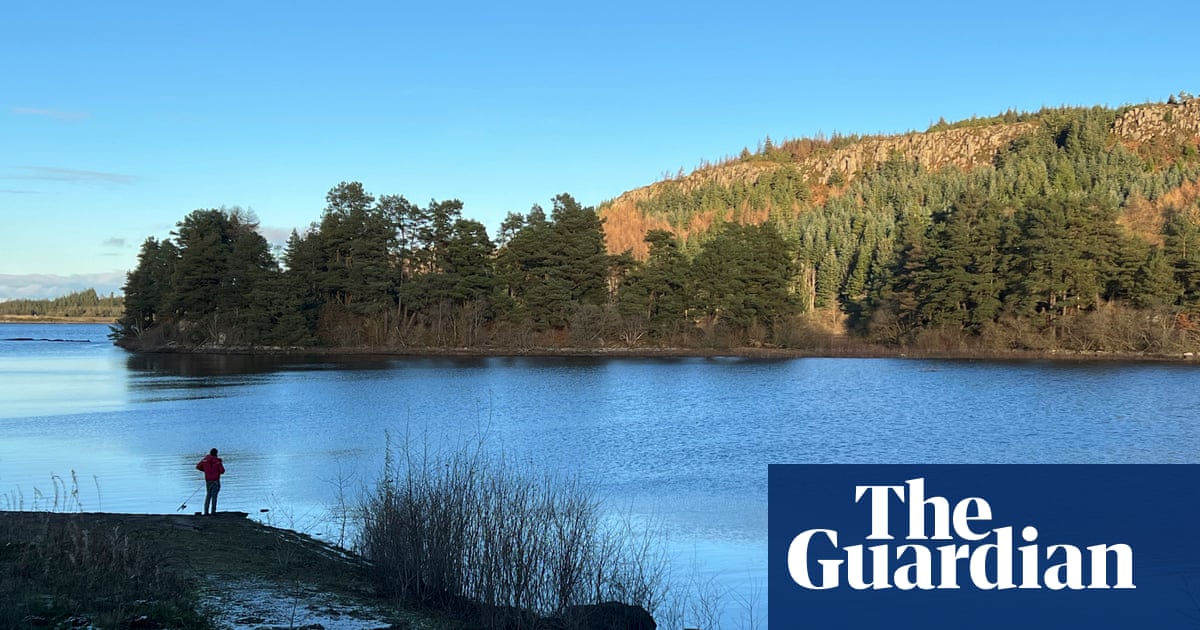As with many nature-centric memoirs of recent years, Marianne Brown’s debut, The Shetland Way, begins with personal loss. It opens at the funeral of her father, Bill, on his home island of Shetland, a place she knows only in glimpses; her parents separated when she was two, and her relationship with her father was characterised by absence, “always promising something it would never deliver”. But her connection with the islands and her late father is forced into an accelerated intimacy; the funeral takes place in February 2020 as the pandemic spreads, and Brown finds herself unexpectedly spending the months of lockdown with her partner and young daughter in Shetland: “Confinement in a land that claimed half my genealogy, a history and culture of which I knew next to nothing about.”
They stay in the house that Bill, a potter, had built alongside the ruins of his grandparents’ croft, an immediate and constant reminder of the complex layers of history written into the islands’ very landscape. In the 1970s, oil wealth changed the fortunes of Shetland, but it’s impossible to forget that Brown’s own family, like most of their neighbours, are only a few generations away from the precarious life of crofters, at the mercy of unpredictable weather, crop blight and unscrupulous lairds, a relatively recent history of emigration and starvation. There is an awareness among the islanders that, despite the presence of Sullom Voe, one of Europe’s largest oil terminals, the “black gold” is a finite resource; the more forward-thinking have accordingly turned their attention to the one thing Shetland is unlikely to run out of: wind.
During her lockdown stay, Brown learns of plans to build a large-scale onshore windfarm of 103 turbines, each 145 metres high, along the spine of the island – a project that met legal challenges and vocal community opposition. As an environmental journalist, she sees the conflicting arguments for and against the windfarm as a microcosm of the larger debate about renewable energy, and whether a negative impact on landscape and wildlife is justified by the longer-terms gains of a transition away from fossil fuels. Two years later, she returns to Shetland to investigate the community rift in greater depth.
after newsletter promotion

Brown explicitly frames the first part of the book in terms of mythologist Joseph Campbell’s “hero’s journey” (the narrative arc of quest, transformation and return characteristic of classical myths and fairytales): “The news of Dad’s death had ruptured my familiar world and sent me in the direction of a land that while not unknown, felt to me unknowable.” Her account of this initial voyage into her father’s world for his funeral is personal in tone, though it’s frequently interrupted by digressions on Shetland literature, wildlife, geology and folklore, as if she is keeping her grief at arm’s length. Nevertheless, there are touchingly intimate moments: finding her father’s old pipe in a drawer prompts a rush of childhood memories that resonate differently since his death from lung cancer. “So many things existed in this small brown pipe, so pleasing in its rounded form, so deadly in its effect.”
You sense that she is on surer ground in the second part of the book, which is more straightforward reportage. Here she examines research in local press archives and scientific papers alongside first-hand interviews with key players on both sides of the argument – those who claim the turbines will destroy precious habitats and those who see it as a chance for the islands to share in sustainable wealth for the future. She is even-handed in allowing her interviewees to make their case, and eventually concludes that her hero’s journey analogy has been the wrong model all along: “This wasn’t a story about me. I wasn’t a flawed hero, an adventurer facing trials and tests, alone against adversity.” Through it all is woven the long history of the islands’ resources and their vulnerability to exploitation; only a new paradigm that puts community above profit can break that cycle.
The Shetland Way offers a fascinating insight into a unique place that holds past and future in uneasy tension, written with clarity and rooted in deep affection – not only for the islands but for the broader land and elements on which we all depend.

 3 months ago
46
3 months ago
46













































